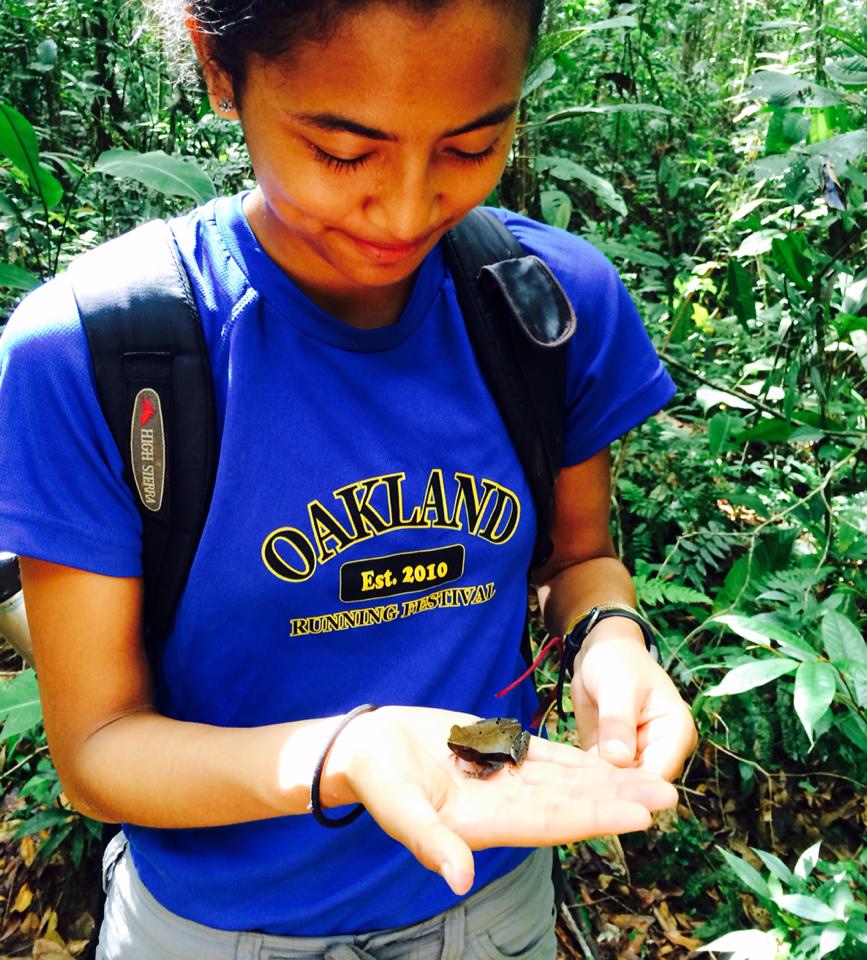After one last circuit through the maze of trails cutting down tape, removing various instruments, every trace that we were even here is gone (excepting the muddy mess of our footprints). This leads me to wonder – what am I taking with me? This mass of numbers, some carefully planned in their collection and others no more than a shot in the dark, don’t have me convinced of any new breakthroughs, unsurprisingly. Although I know nothing too significant can really be accomplished balancing two projects in three weeks, it’s still tempting to ruminate on what more I could have done. This, combined with the monotonous days of hiking endless trails counting craneflies and rebaiting camera traps – with the occasional punctuation of a new observation which once again sparks some innate sense of curiosity and wonder – led me to want to leave with something more. With that in mind, myself and a few close colleagues made the decision to spend our last day conducting some general exploration of the non scientific kind.
Our expedition up the Rio Gaitan foiled by a fear of landmines in the creek and a drawing of straws to decide whether to turn back, we opted to spend the afternoon absorbing the atmosphere of a picturesque tri-tiered waterfall. A surreal view down into the mist and the canopy of the forest below and above us, with brilliant blue morpho butterflies and pollen filtering from the long tendrils of a nearby tree filling the air provided a sublime backdrop for reflection on the lessons I’ve learned in these past weeks here. Primarily, I’ve realized that I came here to learn how to conduct field research – not necessarily carry out some sort of dissertation-quality project. My failures – real or perceived – should not be a source of negativity or self-doubt in my propensity for field research, but rather a source of ideas on how to change course in the future as I proceed in my research career.
There are many other learned lessons I could delve into, but instead, I’ll focus on one overarching insight I think I’ve gained. To me, it seems that the sole driver of good science is the motivation of a curious mindset. When this becomes overshadowed by external motivators – grades, meeting deadlines, appeasing research partners or otherwise pleasing people, or as one moves further along in their career, publishing, it all falls apart. Signaling to others that you’re making progress is nowhere near the same as, and is often counterproductive to, making actual progress. Curiosity means not accepting half measures or subpar methodology; signaling means having results to show when the deadline hits. My biggest disappointment here is, I think, falling prey to this latter mindset due to time constraints; the inability to backtrack on experiments or methodology that upon further reflection seem poorly though out, for example. The bright side, however, is that this is a learning experience, and the deep seated ennui I feel of half measures has cemented the idealism of my original motivations for studying science. Long story short: take the time to appreciate nature and remember why you’re doing what you’re doing or there’s no point in doing it at all, because you’ll probably end up doing it poorly.

